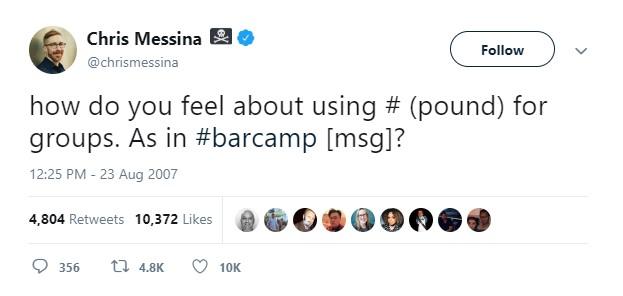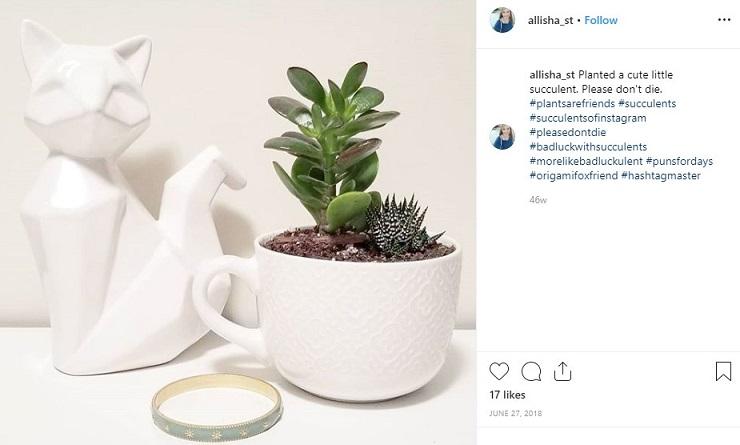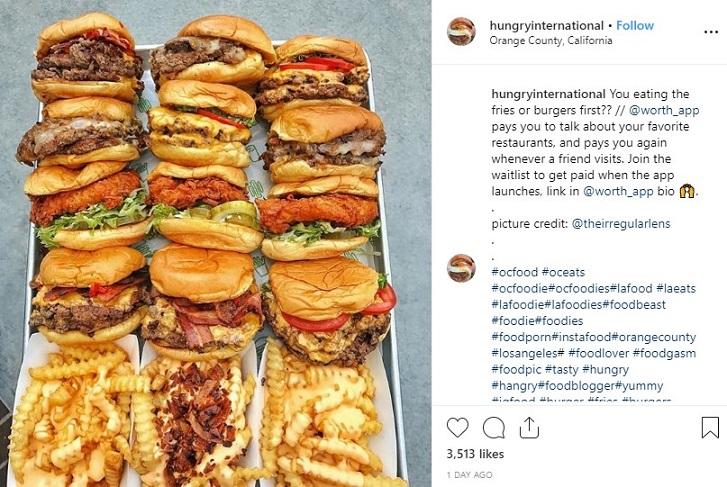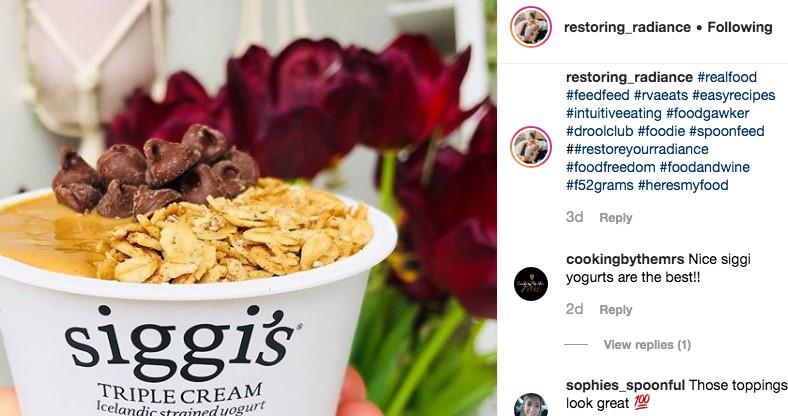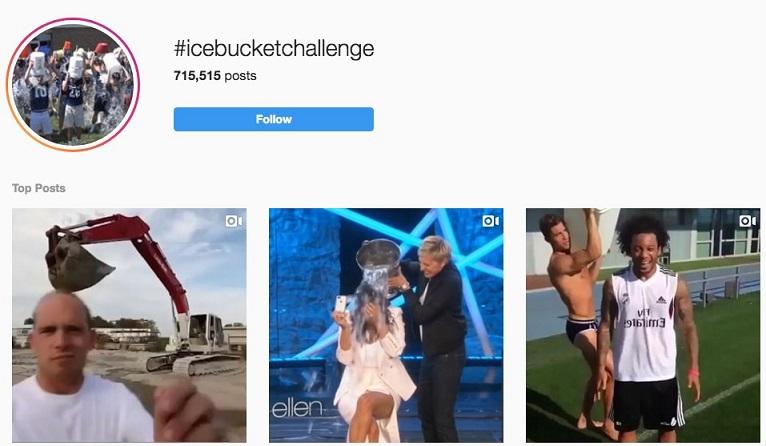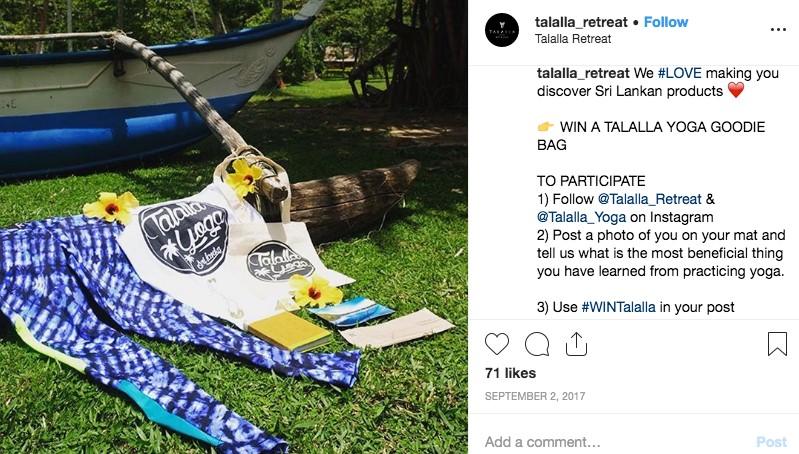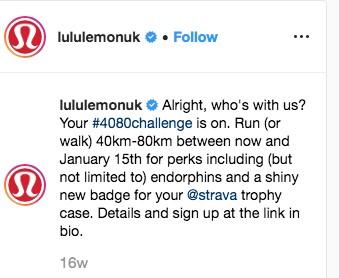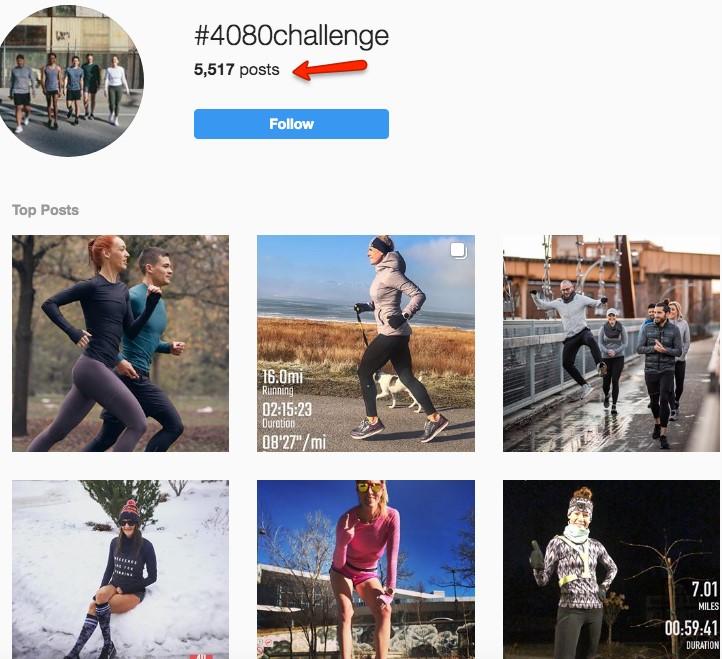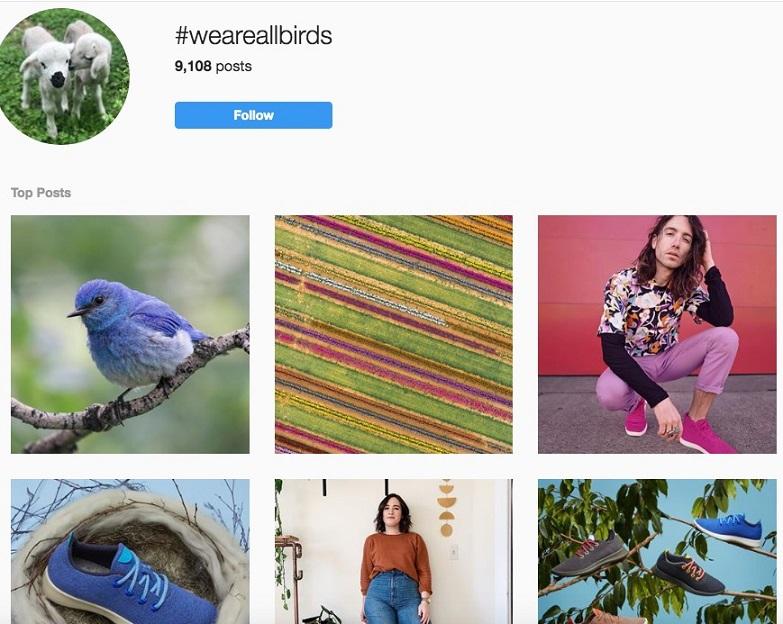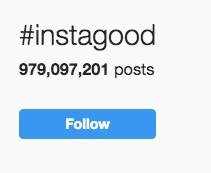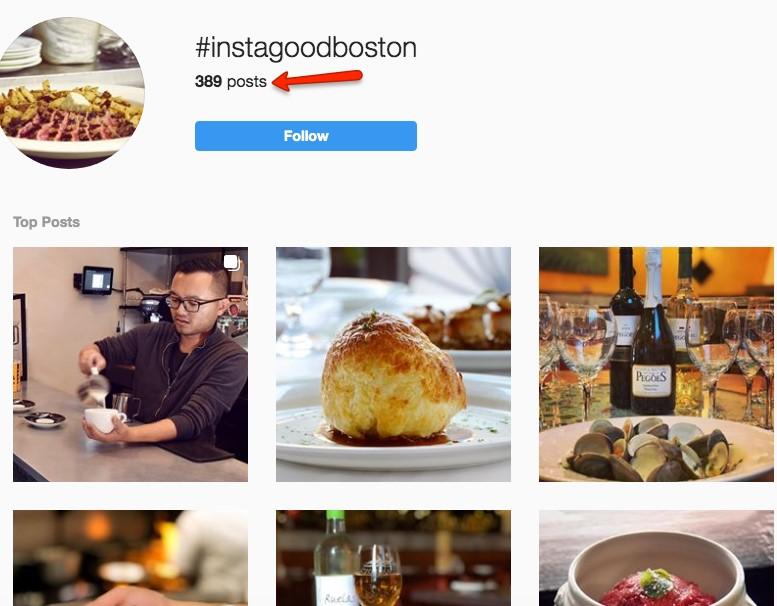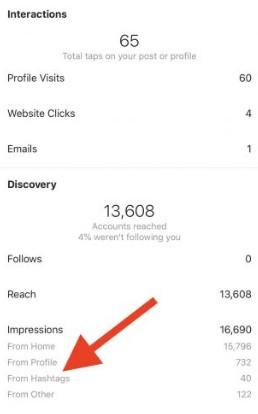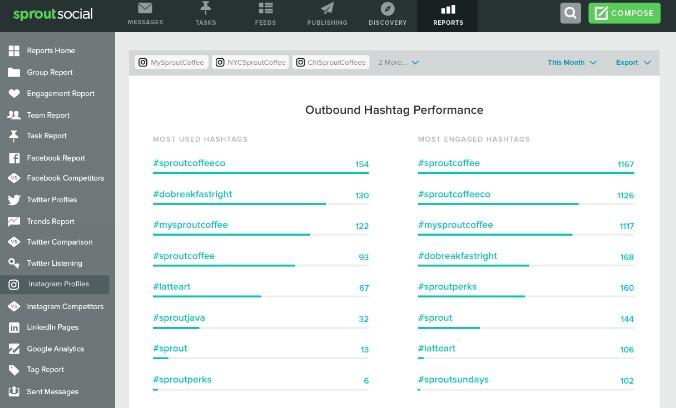If you had told me ten years ago that I would be writing a guide on hashtags, I probably would have laughed at you. (Sorry!). It’s amazing to see how much the hashtag scene has changed in recent years… I still remember when I first encountered the strange idea of “hashtags.” It was around 2010, and I thought hashtags were just a silly little trend. My friends and I started talking in hashtags to poke fun at the hashtag culture. #Sports #Dominoes #MoreWinePlease
Okay, maybe #MoreWinePlease is still fair game.
Fast forward to today and the hashtag playing field has changed dramatically. I am now keenly aware of how powerful and critical hashtags are for the social media strategies of marketers in every industry.
If you still find it funny when Instagram users fill the comments with #’s or are unsure how these tags work, you’re in the right spot: I’m going to explain everything you need to know about using hashtags on Instagram. In this complete guide to hashtagging on Instagram, you’ll discover:
- What a hashtag is.
- Why you need hashtags on Instagram.
- How to make the most of your #hashtagging.
- Which 20 Instagram hashtags are most popular.
Let’s get started!
What is a hashtag, anyway?
The hashtag, or pound, symbol (#) itself had been used in various ways around the web before August of 2007. Then, Chris Messina, a product designer from Silicon Valley, brought the hashtag to Twitter and was credited as the founder of the social media hashtag.
“He got the idea of using a hashtag from Internet chat rooms that had a pound symbol in front of them,” says Erin Black from CNBC. “He decided to pitch the idea to Twitter, but the company told him it was ‘nerdy’ and that it would never catch on.”
Jokes on them, right?
Luckily, Messina was persistent, and the hashtag did catch on in a mighty powerful way. Messina was able to get his contacts to use hashtags in their tweets, and finally in 2009, Twitter added a feature that allowed users to search for hashtags. #PrettyCool!
You need hashtags in every Instagram post: Here’s why
So why are hashtags so critical to use in your Instagram marketing campaigns? Well, Instagram posts that use hashtags gain a 12.6% increase in engagement compared those without.
“Not only do hashtags help social media users organize and categorize content, but they’re also one of the driving forces behind some of today’s best marketing campaigns,” says Maddy Osman on Sprout Social.
Hashtagging is so effective because it helps categorize similar content and make it even more discoverable, which is likely why hashtagged posts get so much more engagement than those without.
“When used strategically, hashtags can provide you with a ton of benefits,” says Olivia Ryan. “They can be used to get your content in front of a bigger audience, raise awareness about your brand, target a very specific group of people, boost your SEO, and use hot trends and topics to your advantage.”
So what are you waiting for? If you want your audience to see your Instagram content, it’s time to up your Instagram #hashtag game!
8 ways to become an Instagram hashtag pro
You might already be using hashtags in your Instagram captions and comments, or you might be skipping those for now. Whether you’re trying to boost your impact or get started, these tips will help you to hashtag like the professional! Here are eight tips to master your Instagram hashtag game.
Image Source
1. Do your hashtag research
First and foremost, it is important to realize that the art of hashtagging is much more than simply adding the hash sign in front of words you think of. To use hashtags in your Instagram content in a meaningful and effective way you need to do your research. So where to start? Here are a few ideas…
- Use online tools: There are tons of tools out there—like RiteTag, ExportTweet, and Hashtagify—that will give you data on what hashtags are popular.
- Start searching: Type hashtag ideas into the Instagram search bar and see what autofills.
- Check your competitors: See what your competition is doing, as well as brands and account that your target audience is likely following. Getting inspiration from other accounts can be super helpful to gain an understanding of what hashtags are trending (more on this in tip #3!).
The key to selecting good hashtags is to ensure they are on target with your target audience’s interests, and popular but not overly popular—you don’t want to get lost in the clutter. You know the kid in school who wasn’t considered “popular,” but was well-liked and known amongst many groups? You want that fall into a similar arena with your hashtag game.
“We’ve noticed that the more niche the topic, the more conversations users are having around it, so it pays off to really hone in on a topic or theme,” says Benjamin Chacon from Later.
2. Don’t over hashtag
While it might be tempting to hashtag your little heart away on each post, it isn’t good to go overboard on hashtags. When it comes to having more of an impact with your hashtag game, it can actually pay off more to be picky. In fact, research has found that the optimal number of hashtags per post is 11.
While Instagram allows you to use up to 30 hashtags per post, your time is better spent researching and using a handful of super effective hashtags rather than stockpiling a ton of tags per post.
Hashtags and burgers: better in moderation.
“Tossing 30 hashtags on a post only does so much-especially for businesses,” says Alex York from Sprout Social. “It gets to #overkill pretty quickly. And if your brand isn’t focusing on the right questions or goals, all of this seems a bit worthless to invest your valuable marketing time.”
3. Get inspired by other Instagrammers in your industry
There is absolutely nothing wrong with spying on your competition from time to time. In fact, when it comes to hashtagging this can be a super useful investigative activity. Joining in on trendy industry topic hashtags and finding niche industry-related tags that your audience is likely following can be insanely beneficial for upping your hashtag game.
Take this food blogger, Restoring Radiance, for example. Below, you can see that she posted a picture of her yogurt, and rather than using simple hashtags, like #yogurt or #breakfast, she used many hashtags mentioning other brands that her target audience is likely following like #f52grams and #foodgawker.
Why not take a page from her book and use some popular industry hashtags in your next Instagram post?
4. Create your own hashtag campaigns
The cool thing about hashtagging is that you aren’t restricted to using other hashtags that have already been used. You can get creative and build a campaign around your very own branded hashtag. This can take your brand to an entirely new level if done in a creative and engaging way.
Take the unforgettable #IceBucketChallenge. The marketing team for the ALS Association was able to raise awareness with this hashtag campaign, but they also raised a substantial amount of money ($115 million to be exact!). Think about how you can do something similar by getting your followers to WANT to use your hashtag, which will help spread brand awareness about your business to other Instagrammers.
5. Keep your hashtags consistent—but not too consistent
As discussed above, it is important to research your hashtags for each post and ensure you aren’t using hashtags that are overly popular. If you do, your posts are likely to get lost in the sea of other hashtagged post. But should you be using a new set of five to 10 hashtags for every single post you compose?
The answer is no. There is absolutely nothing wrong with re-using the same well-researched, highly targeted hashtags if those are what appeal to your audience. In fact, you should keep a note handy so you can easy copy and paste your commonly used hashtags into new posts. However, spicing things up a bit is also encouraged. For example, use the same five or so on-brand hashtags, but add in a few new ones that are even more relevant to the photograph or video you are sharing. Relevancy is critical when it comes to hashtag use: If someone is exploring a hashtag and your super irrelevant post pops up, it could make the entire brand look un-reputable.
6. Build a giveaway around a branded hashtag
Everyone loves free stuff. This is just simple human nature. I find myself entering Instagram giveaways on the daily to win cookbooks of chefs and bakers I follow. Often, these giveaways are quite simple to enter. The brand will post about giving away a copy of whichever cookbook and ask you to tag a friend in the comments to enter. While this is a super easy and doable way to give something away, why not take it a step further with a branded hashtag?
Take the example below from Talalla Retreat, a beach-front resort that emphasizes yoga. Rather than just having users like and tag someone in the comments, their contest required folks to post a picture with the hashtag #WINTalalla. What I love about this type of giveaway is that it is still easy to enter, but it’s going to get so many more eyes on your brand since those entering have to share a photo to their entire followers list while using the branded hashtag.
7. Use hashtagging to connect
Another wonderful thing about hashtags is that they are a great way to connect with others and build a community. Keeping an eye on trending hashtags can help you discover new partners and engage those who are in your target market. Building an Instagram marketing campaign around a hashtag can also be a super useful way to partner up with a related brand. This will help you gain even more exposure, since this partner brand will be posting about your company to their entire audience.
Here is a great example from Lululemon UK and Stava, which partnered to run a fun challenge encouraging followers to complete a 40-80K run and tag their Instagram posts #4080challenge.
Not only does this type of hashtag campaign get both audiences followers involved, but it also grows the brand awareness for each company with exposure to an even larger audience. Just check out how many people took part in this hashtag challenge.
8. Create a catchy brand hashtag to get your customers involved
Hashtags don’t always have to be short-lived contests or campaigns. In fact, some of the most successful branded hashtags are the ones that apply to any post. Take the hashtag created by the sneaker company, allbirds. Rather than using generic hashtags on every post, they use one very creative and catchy hashtag #weareallbirds.
Using a single branded hashtag that’s catchy and clever is a great way of keeping things consistent. It’s also a great way to building a hashtag that happy customers will be excited to use to share their new kicks!
The 20 Most Popular Instagram Hashtags
I know, I know: This entire post I’ve been discouraging you from using the most “popular” hashtags. Why? Standing out in a crowded space can make you unnoticeable. So instead of focusing on the popular tags, the best way to achieve hashtag success is to find niche hashtags that are only popular among your very selective target audience.
So why are we going over the most popular Instagram hashtags now? Well, just because I’m discouraging you from using these exact hashtags below does not mean you cannot draw inspiration from them. For instance, take #love. Why not make a hashtag about #love that incorporates your brand. #WordstreamLove sounds pretty catchy to me!
Or let’s take #instagood, for example. If you run a new restaurant, then this hashtag could not make more sense—so why not try it with a hint of localization to show your tasty food around your city? Just take a look at the #instagood hashtag vs. #instagoodboston. The #instagood has a whopping 979,097,201 POSTS.
But the #instagoodboston hashtag has just 389 posts that are all food/restaurant related. Clearly, people following #instagoodboston are passionate about trying new restaurants in their city!
Without further ado, here are the 20 most popular Instagram hashtags:
- #love
- #instagood
- #me
- #tbt
- #cute
- #follow
- #followme
- #photooftheday
- #happy
- #tagforlikes
- #beautiful
- #self
- #girl
- #picoftheday
- #like4like
- #smile
- #friends
- #fun
- #like
- #fashion
Remember, the best way to use these hashtags is for inspiration—not for hashtag stuffing.
3 tools to analyze your hashtag performance
Now that you are a hashtagging wizard, it’s time to see if your knowledge has been successful at accomplishing your goals. That’s right: It’s time to talk reporting.
Luckily, there are ton of tools that can make this part of the hashtagging process super easy to help you become an even better hashtagger over time. Let’s take a look at a few of our favorites!
1. Instagram Insights
This is one of my favorites because it’s not a new tool. It is simply just the insights provided by Instagram, and therefore it is FREE, yay! The Insights include the analytics that you need under the “Instagram Insights” tab around activity, content, and your audience.
And if you are looking to explore the success of your hashtags for individual posts, you can dig into that posts impressions to see how many came from hashtags in comparison to home, profile, and others.
The best part: All of this helpful free info is available right in your Instagram account.
2. Sprout Social
If you are looking to get a bit more detail on individual hashtag performance, it might be worth investing in another reporting tool that digs into the details, like Sprout Social. This robust social reporting tool will allow you to generate Instagram Hashtag Performance Reports to do a variety of things, including:
- Compare your most used Instagram hashtags to the ones that get the most engagement.
- See how branded hashtags perform relative to broader hashtags.
- Use their tagging feature to build campaign specific hashtag reports.
3. Iconosquare
If you’re looking for a very compressive Instagram management platform, Iconosquare may just be the perfect tool for you. While the pricing is a bit higher there is a ton you can from scheduling social posts, tracking and responding to comments, and accessing very detailed analytics all from one place.
When it comes to hashtag tracking, this tool provides quite sophisticated analytical data in regards to hashtag engagement and whether or not certain hashtags are contributing to brand and/or campaign growth.
There are a ton of other social media tools out there that can assist with hashtag tracking, which is definitely a part of your Instagram hashtag strategy process that should not be overlooked.
And now you’re an Instagram #hashtagmaster!
Woo! That was a lot. Now, you should now be fully equipped to go out into the world and conquer Instagram hashtagging to accomplish your business-related goals. We’re excited to see you take your #hashtag game to the #nextlevel!

